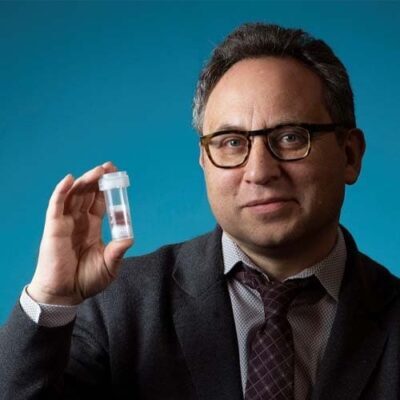
OpenBiome’s Collaboration with the University of Minnesota
OpenBiome is collaborating with the University of Minnesota’s (UMN) Microbiota Therapeutics Program to ensure that patients with recurrent C. difficile infections have access to investigational fecal microbiota transplantation (FMT) preparations.
(Note: Only registered physicians who are members of OpenBiome's Clinical Network may place an order for UMN-manufactured investigational FMT)
Maintaining Access to Investigational FMT Preparations

OpenBiome is distributing investigational FMT preparations manufactured under Good Manufacturing Practice by the University of Minnesota (UMN) under an IND
“Our team cares deeply about patients and specializes in the clinical and operational aspects of running a bank of fecal microbiota-based products. We’re excited to team up with OpenBiome and its extensive network of clinical partners to bridge the gap in patient care.”
— Dr. Alexander Khoruts, Medical Director of the University of Minnesota Microbiota Therapeutics Program

How to Administer a UMN-manufactured Investigational FMT Preparation
Investigational FMT preparations manufactured by the University of Minnesota are stored and distributed in a cryobag. In this video, Dr. Alexander Khoruts from the University of Minnesota demonstrates how to prepare for patient administration.
Main Takeaways:
- Thaw cryobag on ice for at least 30 minutes. Investigational FMT preparations must be administered or discarded within 6 hours of thawing.
- You will need the following materials: BD Interlink™ blunt tip plastic cannula (Item number 303345) or a cannula of the equivalent size, normal saline, 30 or 60mL slip tip syringes, and a graduated beaker.
Treat Patients with an Investigational FMT manufactured by UMN
OpenBiome is fulfilling orders for all clinical partners with identified recurrent C. difficile patients who have failed standard therapies or who wish to keep a stock of investigational FMT preparations at their facility.
Information and Resources for:
Frequently Asked Clinical Questions
Dr. Alexander Khoruts has provided clinical guidance for some frequently asked questions.
